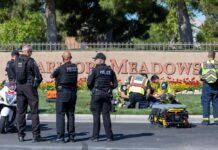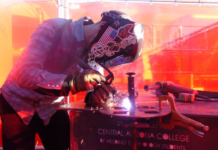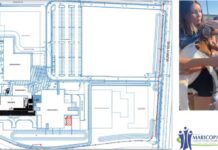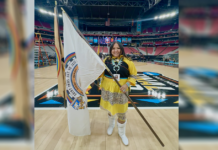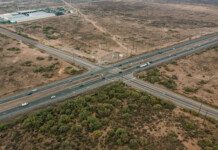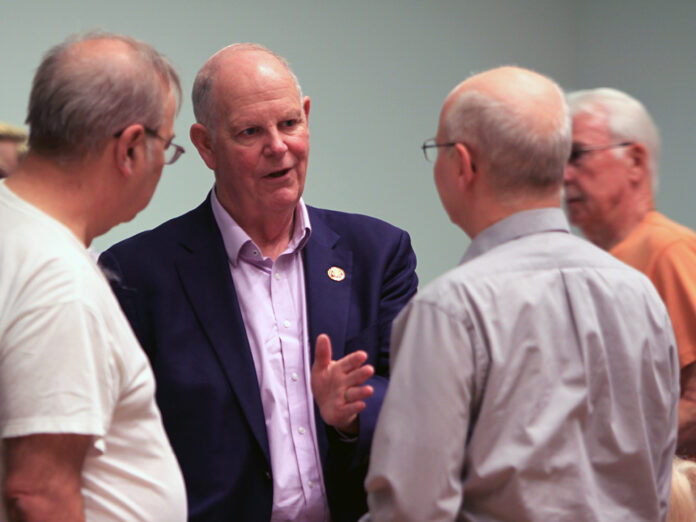
The whole political structure in America “has gotten out hand,” according to U.S. Rep. Tom O’Halleran.
The Democrat-Republican divide in the U.S. Congress needs to be resolved for the good of the country, said the congressman who represents Maricopa in Congressional District 1.
O’Halleran sat down recently with InMaricopa via Zoom for an exclusive interview to discuss some of the issues facing the city and Pinal County.
“We have to ask ourselves what has to happen for us to work together,” O’Halleran said of the two parties. “I don’t get up and talk about the other side and what they’re doing. I talk about collaborating with people. We have people who are talking about not signing on to any Republican bills, or not having Republicans sign on to ours – how does that benefit our country?”
O’Halleran offered a solution, saying the only way to get past the division is for congressional representatives to continue trying to work together to overcome the rampant partisanship and make people understand the downside of dissension.
“We have to get the people of America to understand that every year that goes by that we can’t work together like this will cost us dearly,” he said. “We’re a country that’s based on a Constitution that requires us to work together. Otherwise, things get tied up like we see it back there (in Washington) now.
“Public policy has to be done differently. We went decades without discussing infrastructure, or broadband, and these should have been issues that we worked together on and finding a resolution because everyone knew we needed those things. Need to do more of that.”
O’Halleran, a Democrat serving his fourth term in Congress, was candid about the issues faced by the city of Maricopa. But he sounded a typically optimistic tone about transportation, politics, the economy and redistricting.
The most important infrastructure project facing Maricopa is the expansion of State Route 347 between Maricopa and the Valley. O’Halleran said he was displeased by the Arizona Supreme Court ruling rendering the transportation tax unconstitutional. The half-cent tax would have helped fund those improvements.
The congressman said the SR 347 efforts must continue moving forward.
“I really wish that court case had turned out better,” he said. “But now we’ll have to go to plan B. Luckily, we did the infrastructure bill to at least be competitive in getting the funding necessary to build that highway.”
He indicated that while SR 347 is important, it is one of many high transportation priorities facing by the rapidly growing state.
“We have to get Interstate 10 done. There are a lot of interstate highways through the state that have to get done,” he said. “That 347 corridor is one of those corridors we have to get done. That’s why when the Secretary of Transportation (Pete Buttigieg) came in here, we brought him to that corridor, because that is one that has to be addressed.”
He said federal resources might help with the project.

“And there is enough money,” he added. “The state wants to get it done, the county wants to get it done, the government entities want it done, and for the most part, all of the people want to get it done. We do want to be able to take advantage of this money that is out there now because delay is not on our side. There is not enough money out there to take care of all the highways in America.”
As the conversation turned to the elections coming up in the fall, O’Halleran said he thinks citizens need to get involved in politics earlier in the process, and not just the general election.
“I think primaries people have to get involved in more,” he said. “We have a type of gerrymandering going on around the country, by both parties, and the end result is that by time you get to the general election it’s not really a general election at all. I don’t mind being in a competitive election – that’s the world I grew up in.”
He added the electorate would be better served by candidates who promote their own positions rather than criticizing their opponents. If candidates would just be truthful with the public, everyone would benefit, he said.
O’Halleran said he runs his campaigns on policy, not politics, and doesn’t worry too much about how district boundaries are drawn. But he did offer an opinion on how those who determine the districts should be chosen.
He favors a system in which individuals who want to sit on the commission would submit their qualifications. Those meeting established criteria would go into a lottery and the commissioners would be chosen randomly.
But he said he won’t let the district boundaries affect his outlook.
“Obviously, I was looking for more competitive districts rather than less competitive districts,” he said. “I think mine is still a competitive district. I’ll deal with that.
“It’s like when I was in competitive sports – you put your gym shoes on and get out on that court and start shooting baskets,” he added. “We need to get politics out of the process. And the best way to do that is to be sure to not have politicians on the commission.”

